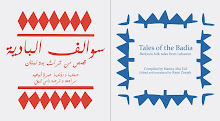BEIRUT: Agriculture Minister Hussein Hajj Hassan urged farmers on Wednesday to improve the quality of their produce and reduce their costs to be able to compete with international markets.
“The quality and cost of our agricultural products must be improved for us to be able to compete on an international level,” he said. “We are faced with many challenges due to globalization and trade liberalization making it easier for products to easily reach every country in the world,” he added.
His remarks came during a conference organized by the Faculty of Agricultural and Food Sciences at the American University of Beirut (AUB) under the patronage of the Agriculture Ministry and in collaboration with the Faculty of Agriculture at the Lebanese University.
The conference aims at reviewing the challenges facing the agriculture sector in Lebanon and the measures that should be adopted in order to improve its performance.
Hassan said that the ministry has drafted a new strategy aimed at dealing with problems related to legislations.
“The legislation that we have is old and some of it lacks the necessary articles that should be present to ensure a better performance of this sector,” he added. “We have also reached an agreement with the government to raise the ministry’s budget and we have managed to double this budget for now, although the reforms that we planning to undertake need more money.”
Hassan said that the ministry was on the verge of a breakthrough in the establishment of a network funded by international financiers for guaranteeing a better quality in production at a lower cost.
He added that small farmers in Arab countries suffer from their inability to access outside markets. “To give a simple example, the production of 1 kilogram of citrus fruit cost around LL384 and the farmer sells it to the wholesaler for LL450 but it reaches the end consumer at LL1,000,” he said.
“There is a real problem in the marketing of agro-food products in Lebanon and this is partly due to farmers and their abstinence from joining unions and cooperatives to protect their rights.”
However, he added, farmers also have the right to get the necessary advice for the production techniques that allow them to produce good quality products. “This should be offered by the government.”
The head of the European Commission Delegation in Beirut Patrick Laurent previously told The Daily Star there was no real economic policy in the field of agriculture in Lebanon. “We have to start with the basics by giving farmers a legal and administrative status, meaning a system should be set up to define the needs of the farmers and then establish a mechanism of general registration for farmers, clarifying the benefits and obligations associated with this registration,” he said.
Moreover, Lebanese Farmers Syndicate president Antoine Hwayek has on many occasions criticized the successive post-1989 governments for failing to adopt reliable strategies capable of maintaining a profitable agricultural industry in Lebanon. He said that the gross revenues generated by this industry in its current miserable state reached $1.5 billion while it was able to generate some $3.5 billion yearly if the required infrastructure was made available.
“[The government] considers that the most profitable sectors in Lebanon are banking and service but never thought of the profits that could be generated from a healthy agricultural sector,” he said. “They are not aware of the fact that families belonging to 800 villages out of 1,000 in Lebanon depend on agriculture for their living.”
AUB assistant professor of Economics Jad Chaaban was among the speakers at the conference as well. He gave a few figures about the agriculture sector in Lebanon. Chabban said the agricultural sector contributed 6.8 percent of GDP in Lebanon and employed around 20 to 25 percent of labors whether directly or indirectly.
He said the importance of this sector in Lebanon stems from the fact that 50 percent of families in rural areas make their living out of agro-food production.
Chaaban also underlined the importance of boosting the quality of Lebanon’s agro-food production in order to be able to compete in the outside markets.
According to an economic report prepared by Bank Audi, Lebanon’s agricultural exports amounted to $69 million in the first half of 2009, up by 4.5 percent relative to the same period of 2008.
It stated that the Lebanese agricultural sector could be well diversified, thanks to the significant differences in altitude within the country. But Lebanese farmers are slowly learning how to make use of this advantage in order to improve the quality of their output.
http://www.dailystar.com.lb/article.asp?edition_id=1&categ_id=3&article_id=111860
The improvement in the quality of Lebanese products is very slow, which increases Lebanon’s dependency on agricultural imports.
The report said this was clearly demonstrated by the fact that agricultural imports, worth $719 million in the first half of 2009, accounted for almost 10 times the value of agricultural exports during the same period.

















+081.jpg)


